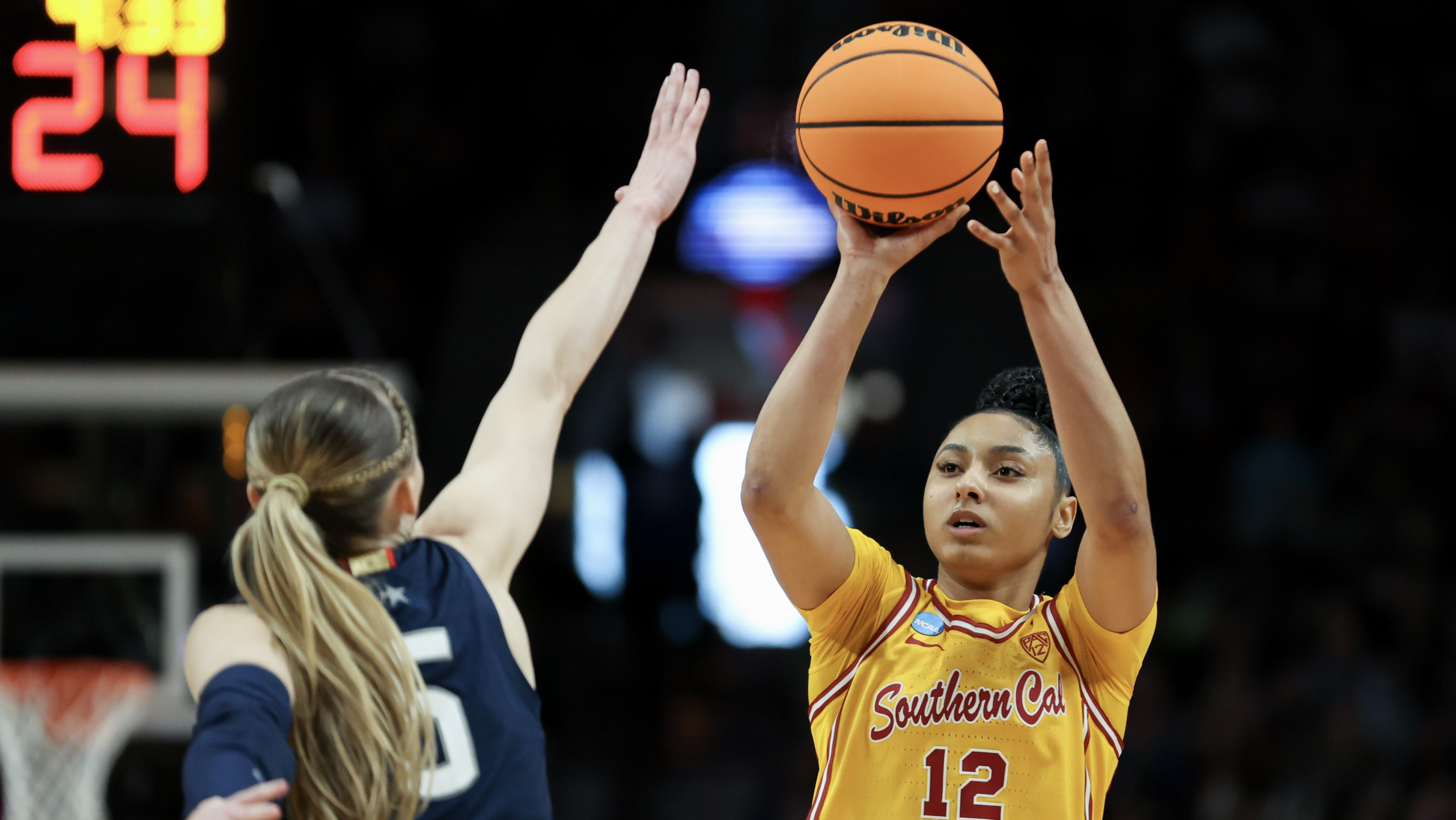We bring news that matters to your inbox, to help you stay informed and entertained.
Terms of Use and Privacy Policy Agreement
WELCOME TO THE FAMILY! Please check your email for confirmation from us.
Sports
OPINION: A number of colorful stars will return to stoke the flames of a sport that has boomed in popularity.
Editor’s note: The following article is an op-ed, and the views expressed are the author’s own. Read more opinions on theGrio.
Until a few years ago, March Madness instantly brought men’s college basketball to mind among the general public, well conditioned to follow the cultural phenomenon for its office pools if nothing else.
The concurrent women’s national tournament? Ha was a mere afterthought, treated like a shabby property used for tax write-offs. The NCAA didn’t improve accommodations or extend March Madness branding for the women’s tournament until glaring discrepancies were uncovered in August 2021.
Now the women are kicking the men’s ass in popularity and TV ratings.
Guys still won at the bank ($873 million to $6.5 million in TV rights), but the NCAA knows it must sweeten the deal for women’s teams. Unlike their counterparts in the men’s tournament, women’s teams get nothing, a shameful arrangement. “You look at what the 68 (men’s) teams are going to divide up, I think I saw $170 million between the 68 teams,” South Carolina coach Dawn Staley said Saturday during a news conference. “When you start bringing in revenue like that, it will move your campus in a different direction when it comes to women. So we’ve got to fight for that.”
They certainly don’t have to fight for attention anymore.
They won that bout via knockout.
South Carolina beat Iowa for the national title Sunday – sending Caitlin Clark on her happy way – in a game that averaged 18.9 million viewers. That’s a 90% increase from the 2023 title game (when LSU sent Clark home) and a 289% increase from the 2022 game (when South Carolina beat UConn).
Clark’s undeniable brilliance and showmanship were driving forces behind the unprecedented viewership, though she was hardly alone. She’s headed to the WNBA draft, along with LSU’s Angel “Bayou Barbie” Reese and South Carolina’s dominant center Kamilla Cardoso, which some observers fear might decrease interest next season.
That might be true for fans who only watched because they saw themselves in Clark. But a number of colorful stars remain to stoke the flames of women’s college hoops.
Associated Press
Deron Snyder
Associated Press
Michael Harriot
Associated Press
Monique Judge
Associated Press
Associated Press
Start with USC’s talented guard JuJu Watkins.
Perhaps you’ve seen her TV commercial with NBA star Joel Embiid, who winds up sporting Watkins’ trademark bun. Playing just minutes from home in the heart of South Los Angeles, Watts showed preternatural poise as a freshman. She lived up to advance billing as the nation’s No. 1 recruit, leading USC to the Elite Eight while she earned honors as an Associated Press first-team All-American. Only Clark averaged more than Watkins’ 27.1 points per game
“JuJu has the opportunity to do something we’ve needed in women’s basketball for a long time. And that’s to transcend the sport and really be at the intersection of women’s basketball and culture,” WNBA analyst LaChina Robinson told Andscape.
USC will play in the Big 10 conference next season, drawing more eyeballs than it did in Pac-12 games. Watkins will become the face of the Big 10, filling Clark’s void and continuing to revive a dormant program that produced Cheryl Miller and Lisa Leslie. USC’s home attendance more than tripled in Watkins’ first season, with stars like LeBron James and Kevin Hart flocking to her games.
“For her to have the year she had as a freshman, fearless, confident, one of the best players in the country, she’s got a lot to build on,” UConn star Paige Bueckers said after bouncing the Trojans last week.
Watkins isn’t the only freshman ready to grab the mantle alongside Bueckers, who’s as cold as any baller — with white privilege to boot. There’s more Black girl magic to go around.
Staley has called freshman MiLaysia Fulwiley a generational talent, capable of moments beyond the reach of most players — female or otherwise. Fulwiley might’ve challenged Watkins for freshman of the year honors if South Carolina wasn’t so loaded — including fellow freshman Tessa Johnson, who showed out with a team-high 19 points in Sunday’s title game.
And we can’t leave out Notre Dame freshman Hannah Hildago, who was forced to remove a nose piercing during the tournament despite wearing the jewelry all season long. Hildago joined Watkins on the AP first-team All-America squad; only three other freshmen have ever garnered that honor.
Notre Dame coach Niele Ivey said Hidalgo is “going to change the game.” Ivey is trying to emulate the path of another game changer, Staley, who’ll remain South Carolina’s biggest star year after year as talent cycles through.
The sport will continue to take root if Staley has a say, regardless of anyone else.
“I just want our game to grow,” Staley said after winning her third national title. “I don’t care if it’s us. I don’t care if it’s Caitlin. I don’t care if it’s JuJu or Hannah. I just want our game to grow, no matter who it is.”
It’s in good hands.
Deron Snyder, from Brooklyn, is an award-winning columnist who lives near D.C. and pledged Alpha at HU-You Know! He’s reaching high, lying low, moving on, pushing off, keeping up, and throwing down. Got it? Get more at blackdoorventures.com/deron.
STREAM FREE
MOVIES, LIFESTYLE
AND NEWS CONTENT
ON OUR NEW APP

